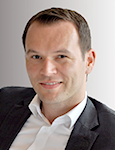Do we need a resource efficiency label for software?
The energy consumption of the IT sector already accounts for approximately 7% of the global energy consumption according to a study done by Greenpeace in 2017.
As this energy consumption is likely to grow due to the ubiquity of software and the development of power-consuming algorithms such as BitCoin miners, it is about time to do something about our footprint on this planet.
The good news is, that the same Greenpeace-Study showed that many of today’s largest data centers already try to use renewable energies as much as possible. The bad news is, that many other data centers don’t and will not do so anytime soon – simply because the local energy utilities cannot deliver the clean energy required for this change. So, what can we do about that as software professionals? Write software that is as resource efficient as possible! Software is the main reason for the provisioning of data centers and thus has a huge influence on their size. When software requires less computing power data centers will shrink automatically, as it is not economical to maintain unused resources.
Especially in the age of cloud computing the correlation between software resource consumption and its hosting cost becomes more and more transparent. In many other domains that require electricity or other resources we already use efficiency classifications in the form of labels. For example, in Germany we have labels for houses, cars, fridges, washing machines, dryers, dishwaters, air conditioners, light bulbs, televisions, and so on. Should we try to use the same kind of label for software?
In this talk I will present available measurement and modeling techniques for software systems that could build the foundation for such a label and open questions that we need to solve as a community to get to a common understanding of the environmental impact of software systems.

Dr. Andreas Brunnert
Dr. Andreas Brunnert is founder of RETIT GmbH, a software and consulting company focused on software performance. Andreas gained more than 12 years' experience in the field of software performance engineering in his various roles at IBM and while leading a research group focused on software performance at an institute of the Technical University of Munich. In recent years, he has focused on the integration of measurement- and model-based performance evaluation approaches.
